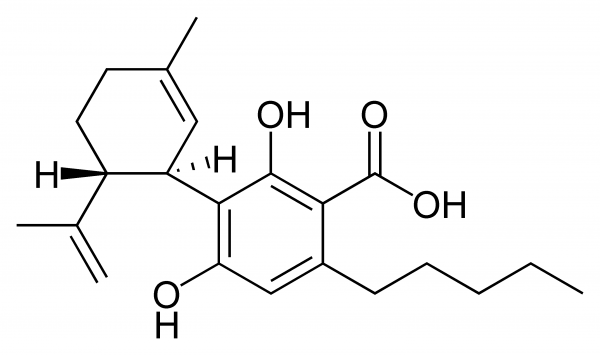CBDA
Cannabinoids – CBDA
From a scientific point of view, CBDA, or cannabidiolic acid, is not an actual cannabinoid, but as the name implies – the acidic precursor to CBD.
The Origin
CBDA is created in cannabis plant as one of the four possible results of synthase enzymes procession of CBGA (cannabigerolic acid). It means that CBGA is a precursor of CBG (cannabigerol), CBDA, THCA and CBCA (cannabichromic acid).
Cannabidiolic acid was first purified and synthesized in 1996, and, until recent times, it was considered to be a cannabis compound of little or no importance. It used to be found in higher amounts mostly in ruderalis strains, however nowadays there more and more strains bred to specifically contain more CBD (thus also CBDA) at the extent of THC – such as ACDC or Harlequin.
Healing Effects
There has not been a lot of research done on this cannabinoid acid yet; however what we have seen so far is very encouraging – it seems that CBDA reduces nausea and vomiting, slows bacterial growth, is anti-inflammatory and even inhibits tumorous growth of certain cancerous cells.
What is also beneficial is the fact that once decarboxylated (heating, drying), it transforms into CBD – the same way as THCA changes into THC – possessing even more therapeutic effects.

